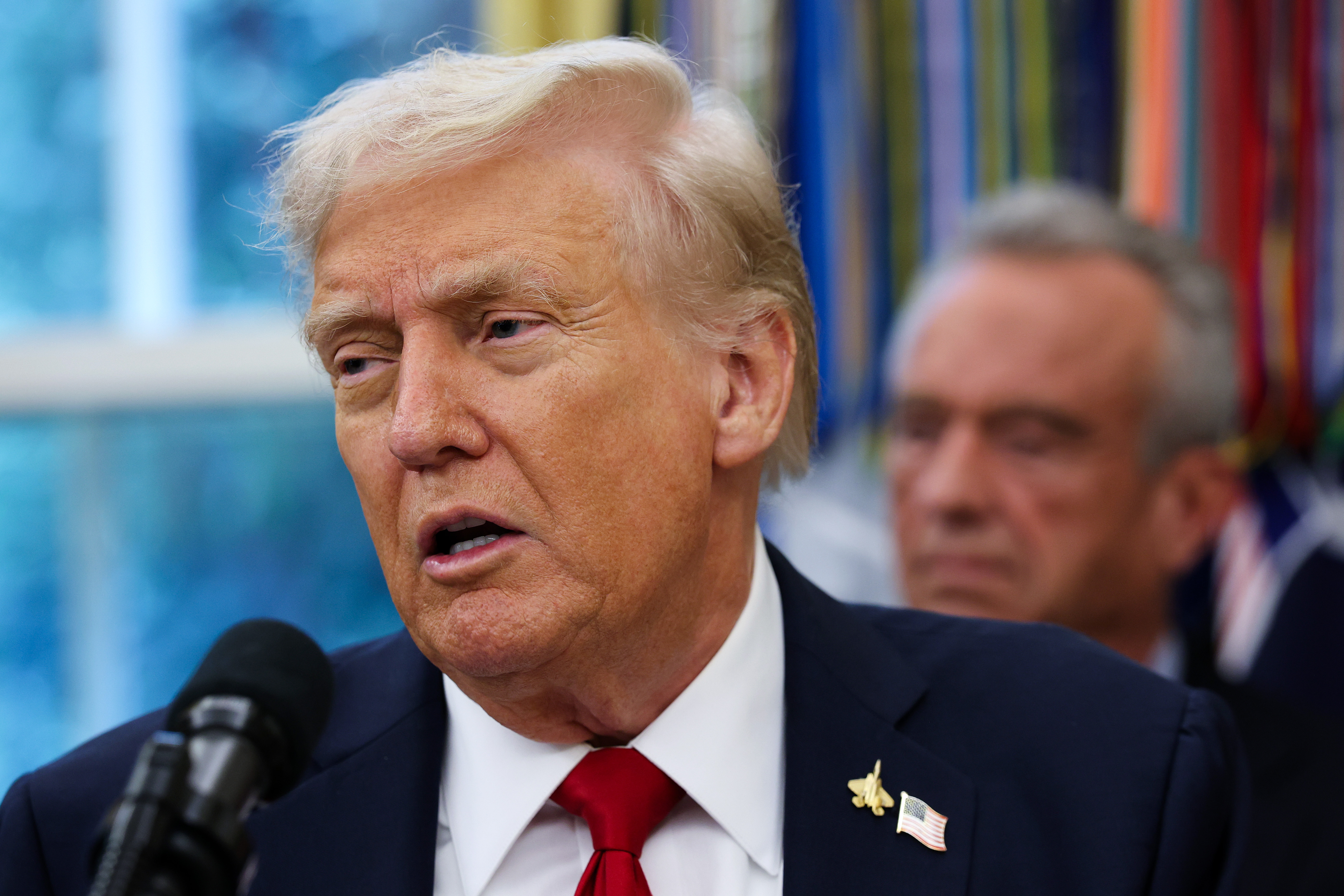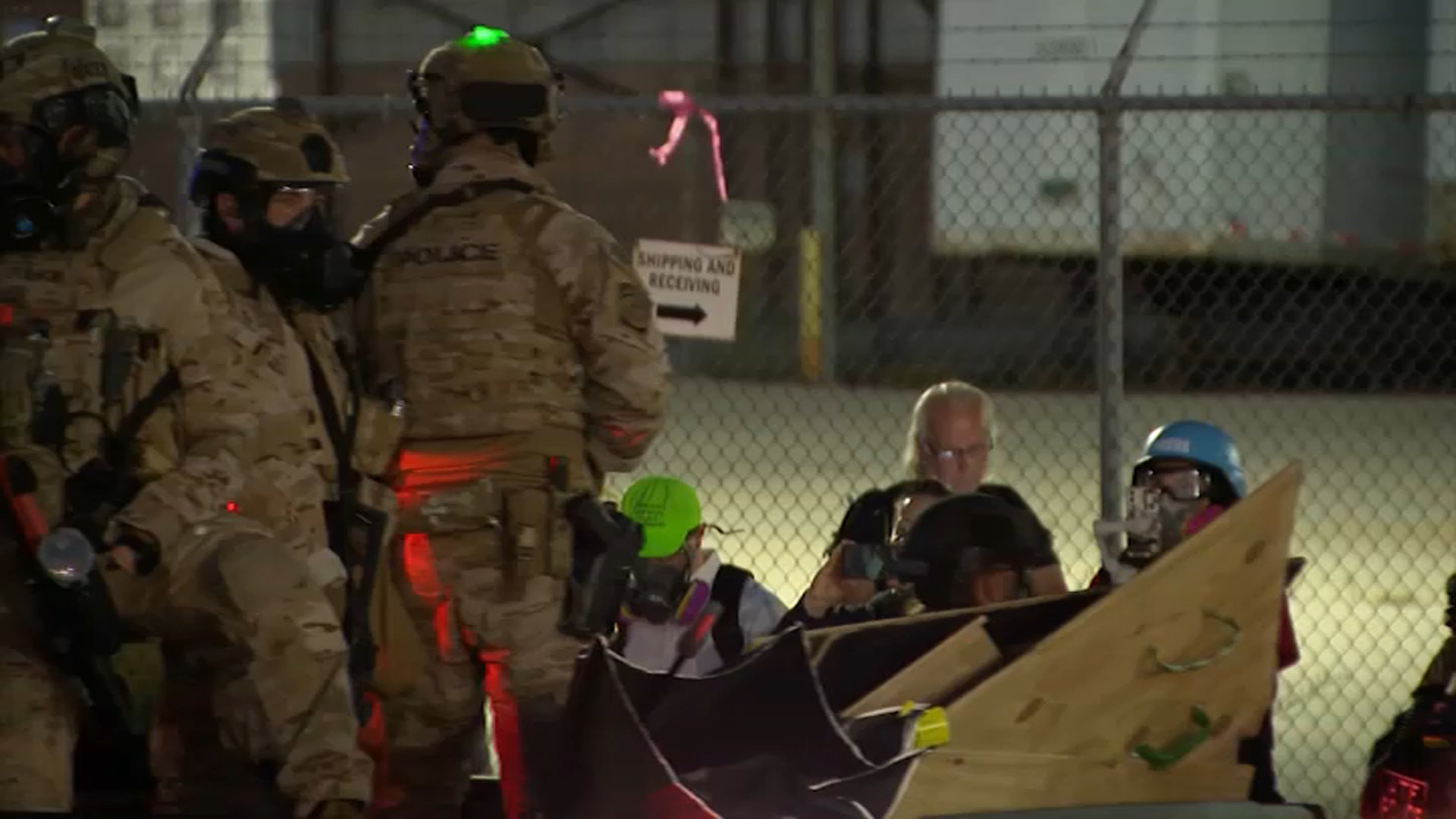President Donald Trump’s show of force in Chicago now includes federalized troops working on the streets with federal agents from ICE, the FBI and other U.S. law enforcement agencies.
What is the wisdom of having federal agents working side-by-side with soldiers or with ICE on immigration sweeps?
NBC 5 Investigates looked into the practicality and safety of that move for officers, soldiers and the public.
From tear gas and pepper ball shots in the suburbs to U.S. border patrol cadres on the Chicago River and city street patrols, the Trump administration now has Chicago on a war footing, with soldiers and immigration enforcement for the first time ever working operations with the FBI.
“It’s not our responsibility to determine whether somebody’s status is legal or not legal. Our job is to get intelligence and send it to the right people who can affect decisions,” said Rob Grant, who was special agent-in-charge of the FBI field office in Chicago.
Grant spent 29 years at the FBI, including Chicago’s longest stint as special agent in charge of the bureau field office here. When Grant left in 2012 he says a forced deployment to the streets with U.S. military — or with ICE — was unthinkable.
“I think lumping the FBI into this process really is not understanding the FBI mission, which I would say from the White House down to the current director…” Grant told NBC Chicago.
“If I was in charge of the FBI now, I’d probably be fired within 24 hours because I don’t think it’s appropriate what they’re doing,” he said.
“They’re not trained to be street officers,” notes former Assistant Cook County State’s Attorney and former FBI official Katherine Schweit. “That’s a risk not just to the federal officers and their safety, but it’s also a risk to the citizens.”
When Schweit was at FBI headquarters, she oversaw mass shooting investigations, just one of the important areas the Bureau oversees.
“You know, the FBI has a big responsibility that we all count on to do their jobs, to take care of national, international concerns when it comes to terrorism and protecting the citizens,” Schweit said. “And their priorities, I think, need to continue to focus on the things that they’re experts in and that we rely on them to be able to do.”
Schweit is now a law professor at DePaul and a crime author.
She’s hopeful that mass shootings and targeted violence can be reined in. But former Chicago FBI leader Rob Grant is less optimistic that political-related violence can be controlled.
“I have just been dismayed at the discourse, at the political level from both current and former political leaders of this country who don’t seem to have apparently any responsibility for their own voices,” Grant said.
It is the nation’s top leaders who have deployed this federal show of force, to work side-by-side with agents from the FBI, ATF, DEA and other U.S. law enforcement agencies here in Chicago and Portland, Oregon, with other locales to come.
When those federal officers are pulled from their regular duties, that means their ongoing cases focused on organized crime, drug and human trafficking, public corruption, etc. are all being pushed to the side for immigration work and securing federal property.

Want more insights? Join Working Title - our career elevating newsletter and get the future of work delivered weekly.

